‘Control of women is foundational to the Taliban’s project’
How life in Afghanistan has changed after the second Taliban takeover, Stanford University historian Robert Crews explains
INTERVIEW
SOCIETY
10 July 2023
correspondent for Novaya Gazeta Europe
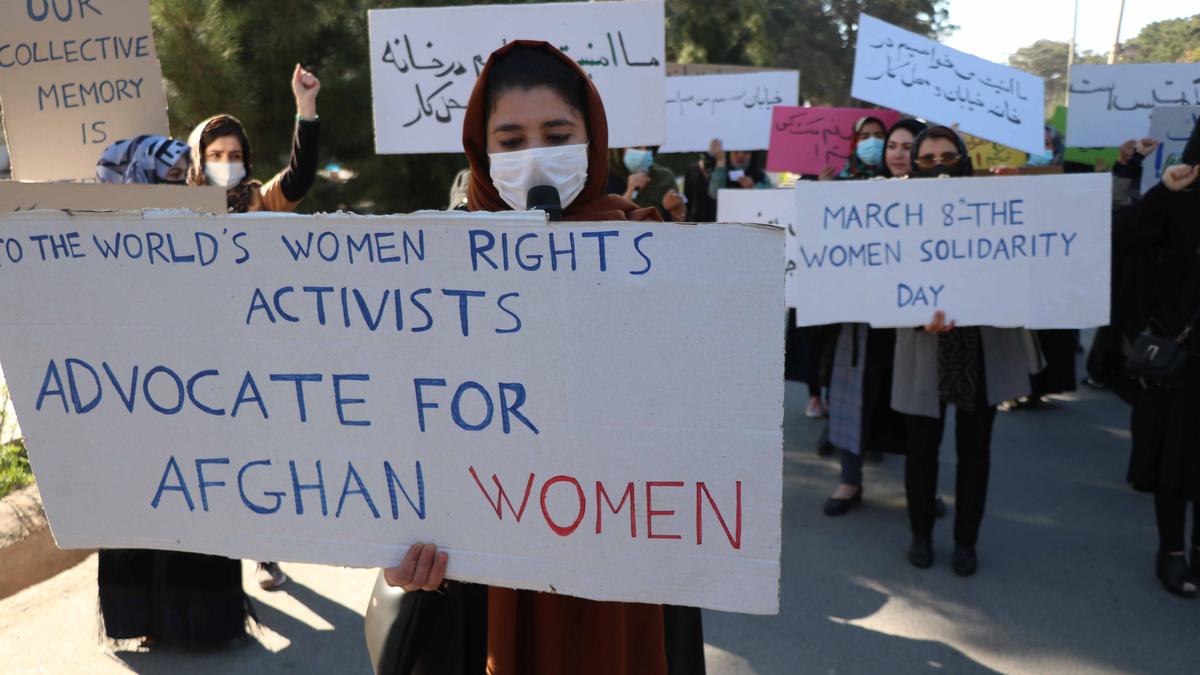
Afghan women during a rally to mark International Women's Day in Herat, Afghanistan, 08 March 2021. Photo by EPA-EFE/JALIL REZAYEE
LONG READ
After the Taliban entered Kabul in August 2021 and re-established control over Afghanistan, they made a pledge to install a softer, more moderate regime compared to their first time in power in 1996-2001. Or at least, this is what the people wanted to hear.
Since then, however, the Taliban have been putting increasing pressure on half of the country’s population — the women. Over the course of the last two years, the Taliban have installed a mandatory head-to-toe cover up dress code for women, prohibited them from entering most public places including parks and sports centres, and banned young girls from going to schools and universities.
Most recently, the Taliban have ordered hair and beauty salons in Afghanistan to shut down, leaving even fewer job and leisure opportunities for women. The UN said all the progress that had been achieved in regards to female liberation during the 20-year-long US intervention in Afghanistan was erased after the Taliban takeover.
Novaya Gazeta Europe spoke with Stanford University historian and expert on Afghanistan Robert Crews about how the Taliban have changed during their second time in power and why the oppression of women plays a crucial role in their ideology and political project.

Robert Crews
Professor of History at Stanford University and editor-in-chief of the journal Afghanistan
Taliban is often mentioned alongside ISIS or North Korea to illustrate some sort of extreme conservative entity. But what exactly is the Taliban? Where is it placed on a political spectrum and how does it operate as a government?
Most reasonable people are critics of the Taliban because of their long record of human rights abuses, history of engaging in all kinds of atrocities against civilians, women, and marginalised groups. It’s tempting to put them in a camp alongside other “ideological enemies”. But it depends upon who’s doing the classification. Rather than think about ISIS or North Korea, a closer analogy is with Saudi Arabia. One thinks of a political structure whose architects imagine that they are implementing God’s law.
The framing the Taliban have primarily is that everything they do is about Islam. Understand it as a tradition which relies fundamentally on the centrality of religious law. It’s important to point out, however, that the Taliban have a very particular understanding of Islamic law and its relationship to politics.
The Taliban claim, in fact, that they are doing the work of early Islam, of the Prophet Muhammad in the seventh century, and really holding this era of the Prophet Muhammad as an exemplary model for their politics. But what we know is that the movement that they founded was shaped by the Cold War, when the United States fought a proxy war against the Soviet Union.

Cover of Global Jihad, A Brief History, by Glenn E. Robinson
The thinkers that are now the inspiration for the Taliban really only emerged in the 1980s and 1990s. They emerged from a global jihad, but also from a very distinctive milieu formed in refugee camps. It’s a very specific intellectual formation.
As much as the Taliban are a Cold War project, they are also a modern project. Their ideas have evolved in the last 20 years under the pressure of a war against the United States, a war against American hegemony.
One central kernel of the Taliban’s ideology is this very strong commitment to ordering the lives of women. I think much of what the Taliban are doing in their minds is a direct response to what the Americans did.
What they are doing with respect to women is a very intentional program to dismantle what the US, NATO, and various foreign actors did over 20 years.
What the Taliban understand by governance has historically been quite distinct from the global norms. They first came into power in some parts of the country in 1994 [during the Civil War] and their entry card into different geographic locales was to say: “We’re bringing order”. That meant Islamic law and a strong emphasis on what we would call judicial matters.
They claimed to bring law and order, disarming some people, imposing police presence, and putting a strong emphasis on sexuality, on the policing of morals as the foundation of public order. First, they struck their political opponents and then immediately after established a court system and a regulatory system that looked over family relationships, the conduct of wives and women in general.
For some Afghans, this was very attractive. Imagine you’re living in a place where there was a kind of strongman who ruled quite capriciously for his family, he ruled by the gun. He may have seized women or boys for his pleasure. Then you have Robin Hood-like figures, who come to town and claim in a of populist vocabulary that they are setting things right for the people.
From an outsider’s point of view, it’s a very minimalist understanding of government. But in their thinking, it’s already complete. It’s sufficient. It’s enough because God’s law accounts for everything, right? If we can bring morality to society, then that will affect things at the market. For example, when you go to the market, no one will overcharge you for bread because they’ll recognise that we live in a just moral order. So all the kinds of regulatory mechanisms that in a European setting would be within a social contract are already embedded in Islamic principles, the Taliban argue.
What degree of popular support does the Taliban government enjoy and is it possible to accurately measure it?
The Taliban rule by force, by the threat of violence. From a scholarly point of view, the forms of violence that they rely upon are interesting because they are very theatrical. I just saw a video recently of a truck driving around Kabul with a crane with bodies swinging from it.
When they were in power in the 1990s, they would bring people to the football stadium in Kabul and execute them there. Others watched it as entertainment. The Kabul Stadium killings in the 1990s were important because they were symbolic, it was like theatre. If you’ve ever been to the Red Square, you know there’s a place there where the executions happened. So it’s all very mediaeval and early modern.
Like I said, the Taliban rely on fear, but in Afghanistan there are people who, for various reasons, like the idea of law and order and like the idea of being on the right side of God. There are also people who were totally screwed over by the American presence. NATO forces killed tens of thousands of Afghans, so there has been a seething resentment against the foreign presence. The idea that Afghan nationalism is about opposing foreigners remains a strong one, all Afghans share it to varying degrees. So if you see the Taliban as your heroes who saved you from the evil Americans and if you’re not an adulterer, you’re not a thief, and you don’t run afoul of their morals, then their rule might not be so bad.
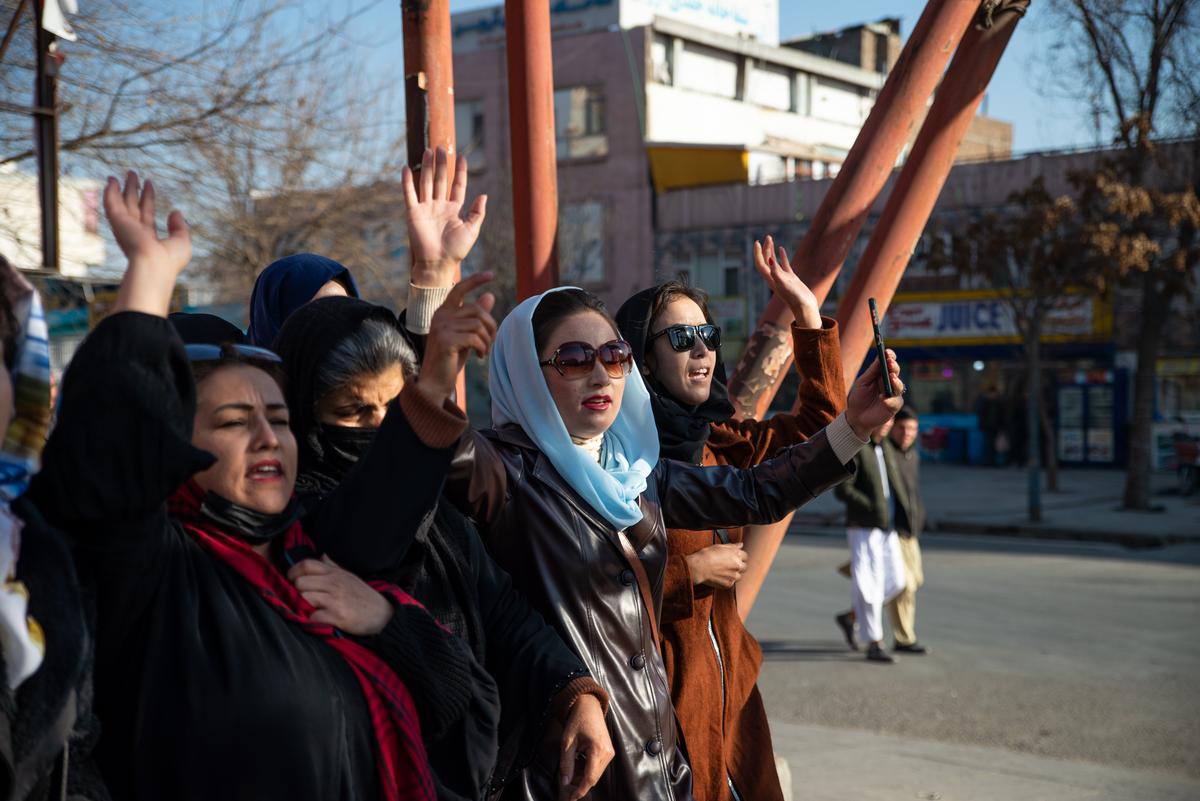
Afghan women protest against new Taliban ban on women accessing University Education on December 22, 2022 in Kabul, Afghanistan. Photo by Stringer/Getty Images
But can I tell you what percentage of the population that is? No. There’s also an ethnic dimension to that. The Taliban are almost exclusively an ethnic Pashtun movement. So are the vast majority of their supporters (Afghanistan consists of multiple ethnic groups, the Pashtun group is believed to be the largest one. — Editor’s note).
Ethnicity is also a very sensitive subject in Afghanistan. More and more people reject the idea that the Pashtuns are really the biggest group within the country. There’s a dark side to it.
The people who served in the Soviet army in the 1980s have since written memoirs about their time in Kabul. A lot of them try to understand why that [Soviet–Afghan] war was a failure.
They also write things like: “We backed the Pashtuns because historically they have been the dominant people”.
In almost every case, the Soviet experts and advisors said “We need to make sure we have a Pashtun on our side so that the Pashtun can control everyone.” Then the Americans came in and did the exact same thing. They thought that in order to install a new government in Afghanistan there needed to be a Pashtun at the top. And the other Afghans wondered why. Unfortunately, the Afghans are now spread all over the world and the tensions between Pashtuns and non-Pashtuns are worse than ever.
Taliban was also in power in Afghanistan from 1996 to 2001. How do the “old” and the “new” Taliban differ overall?
The Taliban did change a lot. They adapted to the new circumstances starting with the foundation — the violence. They modernised their military, they wear uniforms now, they have tanks and helicopters. The Taliban also adapted little things along the way, for example, the practice of suicide bombing which came from Iraq.
There was this idea that “the new Taliban” would be nicer, softer and more moderate but I think that’s what people “promised for them”. They became much more effective in communication, their propaganda became much more sophisticated. What they said consistently but in more sophisticated ways was: “We are for Islam, for the Afghan nation, and against the foreigners.”
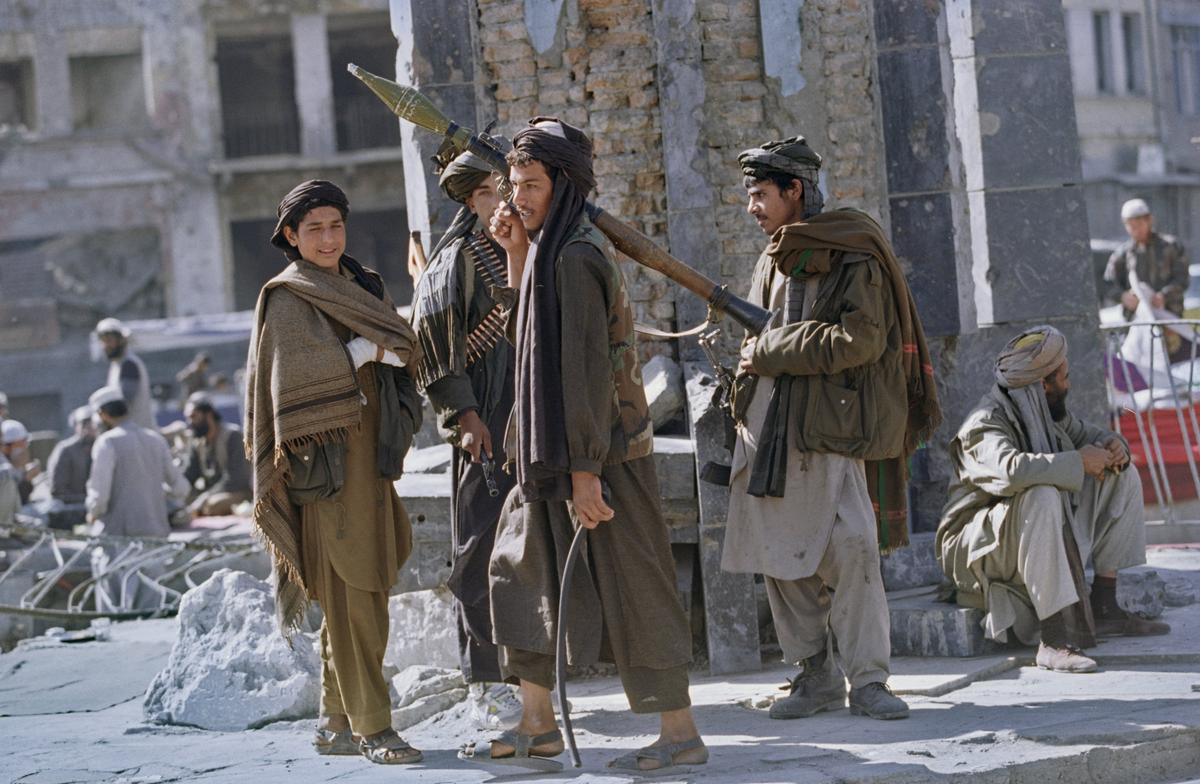
Young Afghan men in Kabul, Afghanistan, 1996. Photo by David Turnley/Corbis/VCG via Getty Images
The images of the invaders, the crusaders, the outsiders, the foreigners were always a huge gift to the Taliban propaganda. Back in the 1990s, there was a debate within the Taliban whether to use modern mass media. This is crazy, but briefly in around 1999 they even had a website. They shut it down quickly but then put it back up in 2010.
That’s the weird thing about how the Taliban are. Many of them were sitting in Pakistan, they were young people. They went to school, they liked computer stuff. Then, like many other people in the world, they watched Hollywood movies. As a result, they started producing these very sophisticated videos that were essentially a blend of Hollywood cinematography with their core principles, for example, martyrdom. The Taliban have this idea that when you’re a martyr and you die fighting the Americans, your body doesn’t corrupt, it doesn’t tear up. So they make clips about that and some of it is homoerotic even, videos about young beautiful men turning into flowers.

Women in Afghanistan
After coming to power, the Taliban made a pledge to install a less radical regime. After that, however, we’ve been seeing mixed messages about women’s rights in the country. Most recently, the supreme leader of the Taliban said “the status of women as a free and dignified human being has been restored”.
What do all these claims mean?
These promises to liberate women mean very little, unfortunately. The Taliban are under significant international pressure to develop new policies towards women, but there’s no muscle behind. You see statements from some UN officials, but that’s it.
In the 1990s, the public infrastructure was already devastated as a result of the civil war. The questions arose — can women work in hospitals? What about widows? Can widows work in a factory or work in a bakery? The Taliban said no. Fast forward to 2021, the Taliban encounter a society in which many women have been working in all kinds of sectors. The Taliban then start to exclude women from public spaces once again.
How crucial is oppression of women to the Taliban’s ideology? Meaning, if the situation with women’s rights was to improve, would that weaken the whole regime?
Control of women is foundational to the Taliban’s political and religious project. If anything, it has become more central over the last 20 years as a direct answer to the alternative political order that the US and its allies established. Sure, it was important in 1995 as well but at the time the Taliban also had to win a war and take over the country.
But now imagine those same fighters in 2021. They rode into Kabul and they saw a society around them that demonstrated a complete rejection of the moral values that they held.
So the status of women became inseparable from what they think is their struggle against foreign influence and against the Americans. It’s not just about gender narrowly, but about their vision for the country.
The American project was so much about changing the status of Afghan women that what we see today with all the restrictions the Taliban have imposed is really an attempt to answer back to this project in a very specific way.
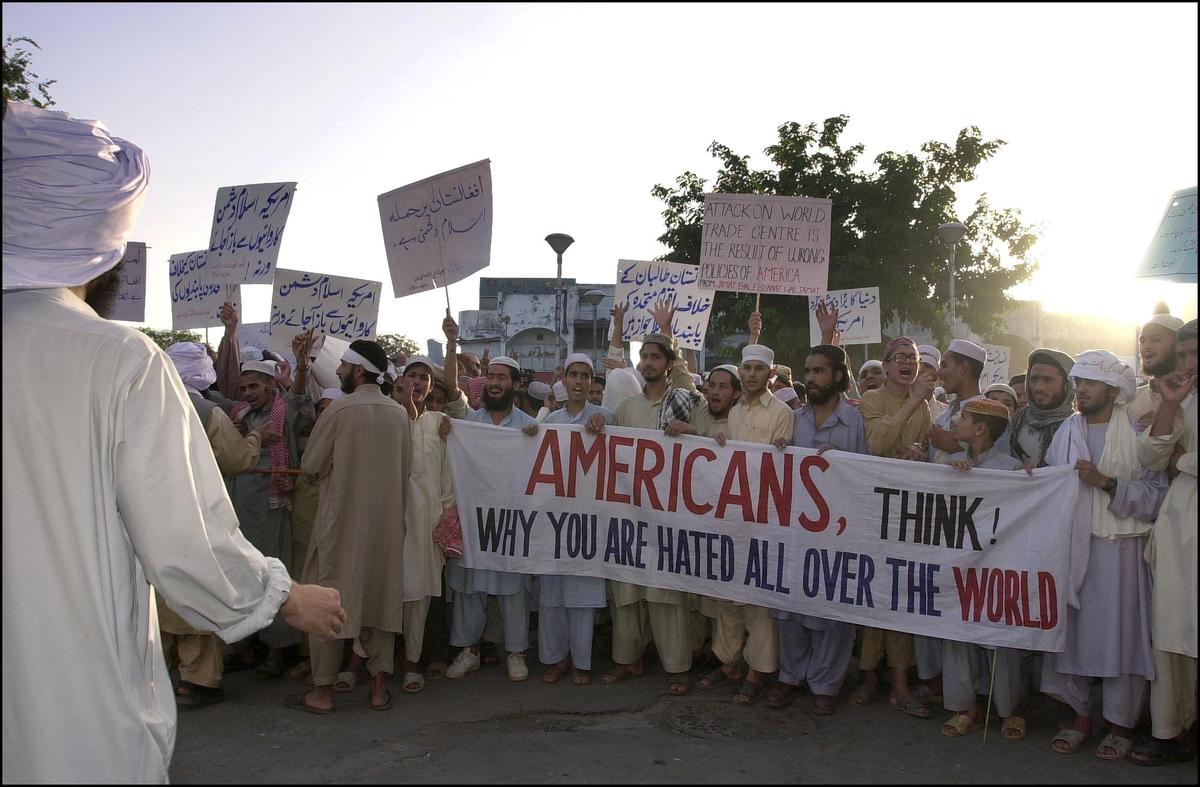
Demonstration and prayer in support of the Taliban on 17 September 2001 in Islamabad, Pakistan. Photo by William STEVENS/Gamma-Rapho via Getty Images
20 years ago, the George W. Bush administration used women’s rights and empowerment as a one of justifications for its war in Afghanistan. Now the Taliban are back, women’s rights are at stake again, and the American campaign is seen by many as a failed one. How does that change the international community’s approach to put pressure on other states in the name of moral progress?
The women’s issues were used by the US as an instrument, a tool to get the progressives and liberals on board with this war. The very first people to make the statements were Laura Bush, George Bush’s wife, and Cherie Blair, Tony Blair’s spouse. They gave almost identical speeches within two days of September 11th.
For me as a historian, it seems to completely replicate what European colonial powers did very early on in the 19th century. There was this idea that Algerians should not rule themselves because of what they did to the women. Russians did this in Turkestan (during the conquest of Central Asia by the Russian Empire. — Editor’s note). It was totally a European thing to place gender at the centre of these colonial relationships.
The cynicism of that didn’t totally destroy the aspiration, though. Politicians should be working toward gender equity. However, doing that at the point of a gun was always problematic and doomed to be illegitimate. But now the pendulum has swung another way, where no one cares about women.
How do Taliban’s numerous accounts of human rights abuse affect Afghanistan’s position and influence globally? We’ve seen countries that do some business with the state on the down-low, including China, Russia, Iran, and Turkey.
When the Taliban were in power in the 1990s, there was much more condemnation of their politics, especially of their gender policies. But today, most neighbouring states are more or less content to see them do their thing without any formal recognition.
First of all, no foreign country has given the Taliban diplomatic recognition. Even Saudi Arabia, Pakistan, and the UAE, who recognised the Taliban the first time around, remember they got in a lot of trouble for that. But again, if you look at the map and start looking around, you see Russia, Uzbekistan, Kyrgyzstan, Turkmenistan. Everyone is going to Kabul. Russians never left their embassy. China never left their embassy. Pakistan, of course, has close relations. India is trying to play a bigger role. Afghanistan is so important to all these countries that they’re not really going to do too much to oppose the Taliban.
But the Taliban do enjoy a form of what I’d call a “soft recognition”. Iran and the Taliban have decent relations, despite occasional border skirmishes and disputes over water. The Saudis are very quiet, but behind the scenes they back them.
It’s very frustrating for the Afghan friends of mine. They try to do good things within the diaspora, but on the international level, I don’t see anything any country can do to change the Taliban’s conduct and policies unless there’s truly a global conversation which the US does not want to have with all these states like Russia and Iran. The US doesn’t care about the Afghan women and neither does Russia.
The Taliban don’t really face any pressure from the international community for a variety of reasons. For the regional powers there are all these economic relationships and money to be made [in partnership with the Taliban].
As for the US, recently Joe Biden said something along the lines of: I told you the Taliban would help us against al-Qaeda. That made Afghans who oppose the Taliban furious. They started wondering if Biden was admitting to an alliance with the Taliban. I think from the beginning this was part of the secret deal between the Americans and the Taliban. The agreement was to fight against their common enemy — al-Qaeda and the Islamic state (the hostile relationship between the Taliban and other terrorist groups has to do with a different understanding of Islam. — Editor’s note). I heard that the Washington officials have written off Afghanistan as a country but ready to deal with the Taliban as a new counter-terrorism ally.
People from Afghanistan form a large percentage of refugees entering Europe, but reports show that the vast majority of Afghans fleeing the country are men. Some believe this has to do with discrimination within Afghanistan as well — sending a woman on a dangerous journey is not seen as “economically reasonable”, as women, if they survive, still end up getting lower-paying jobs than men. How could the West aid Afghan women in escaping dire conditions?
I shouldn’t make predictions as a historian, but I think eventually there’ll be voices calling for a new war in Afghanistan against the Taliban. It’s just too easy. In the US, we never have enough enemies.
What one could do in a non-military way is facilitate legal migration. Instead of forcing people to make a dangerous journey, fly them out on planes. So they don’t have to get subjected to violence, smuggle themselves through Iran and Turkey and then drown in the Adrian Sea.
Given our inability to change Taliban behaviour, one thing to be done within my line of work is creating more spaces for the Afghan women to come to study here [in the US].
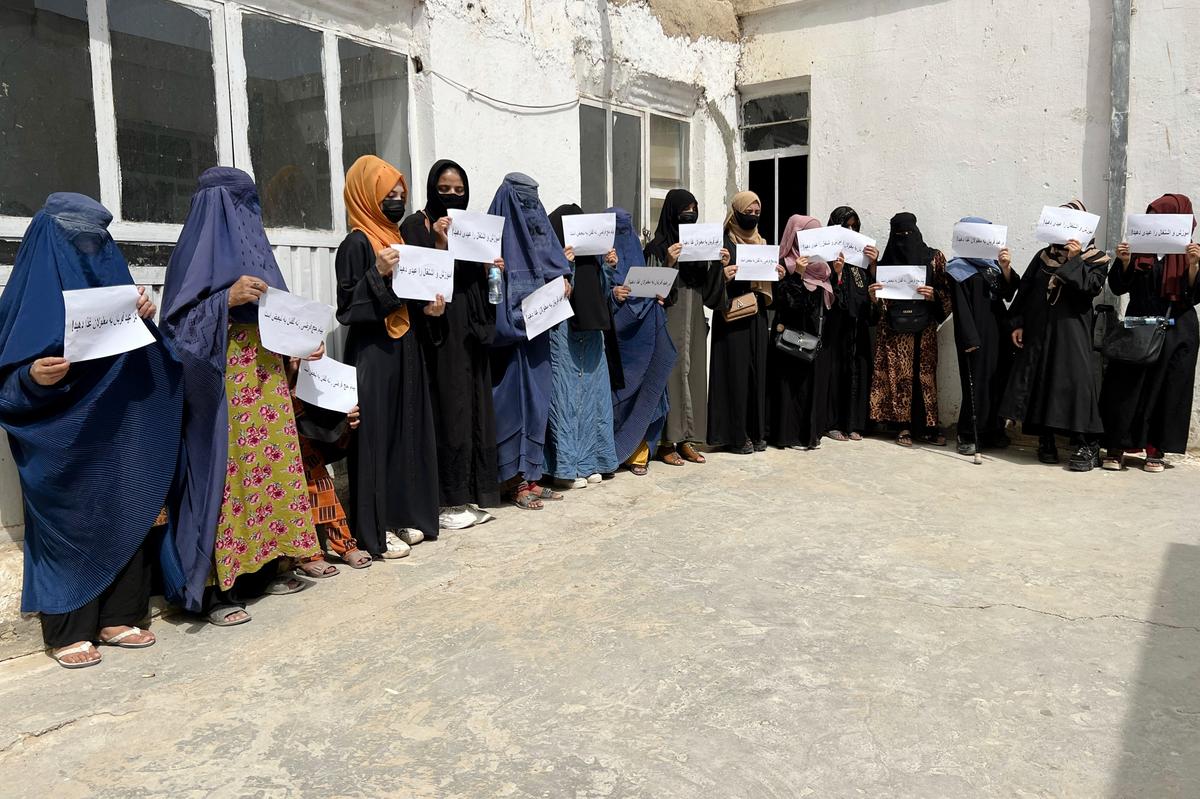
Afghan women hold up signs demanding their rights to education and employment. Mazar-e-Sharif, Afghanistan, 26 June 2023. Photo by EPA-EFE
What are the forces within Afghanistan fighting for women’s liberation? How do women show resistance on a personal, day-to-day level?
From early on, women-led resistance did a lot to liberate the Taliban’s policies. The Taliban were hesitant to introduce repressive measures right out of the gate [in 2021]. From the very beginning, it was consequential that women came out and engaged in street protests and held up signs in a variety of languages to speak to the world. I think that had a temporary effect in stalling some of the Taliban policies.
The other thing women are doing that is worth noting is engaging in a lot of underground activities. Especially with mutual support networks, running underground schools. But of course it’s hard to say how extensive that is.
That was a hallmark of the 1990s. There were some underground schools. Now there’s a lot more experience and in how to do that. But it’s not really sufficient to replace formal schooling for everyone.
One of the questions is “Where are the men? Why don’t they protest?”. There’s also a small armed resistance group around the Panjshir valley. There’s a lot of propaganda around what that looks like. Its backers want to say it’s a big military force that might succeed. But, unfortunately, two years into their resistance movement, it looks unrealistic.
So women are left with very few options. One is trying to leave the country and that’s very difficult. Where can you go? The other is to try to adapt and survive, which is getting more difficult as well. There isn’t really an avenue for women to change the system from within because they’re excluded from positions of power or even state authority.
It’s very frustrating. The Afghan society is so young, and here are all these people who are just deprived of a future. The rates of suicide are increasing, especially among young women, young girls. It’s a reflection of absence of hope.
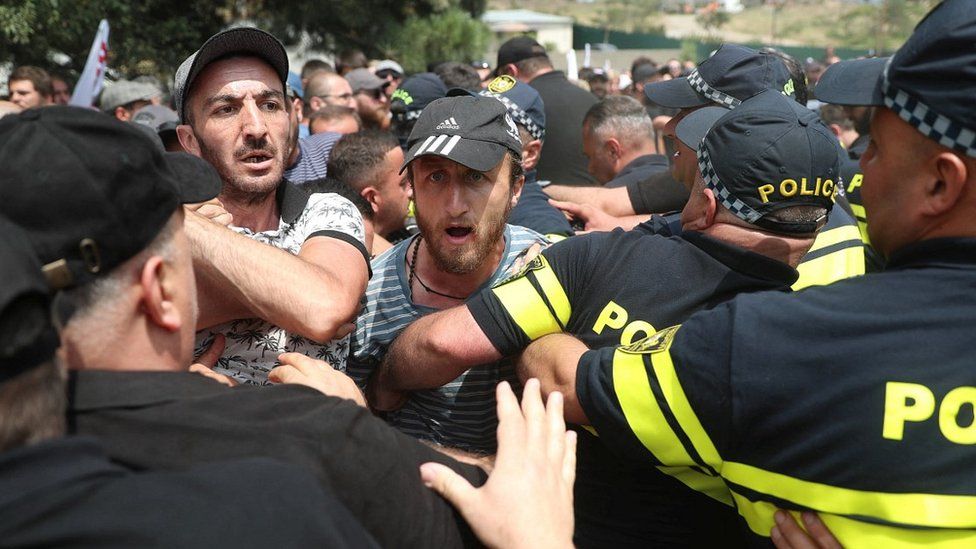
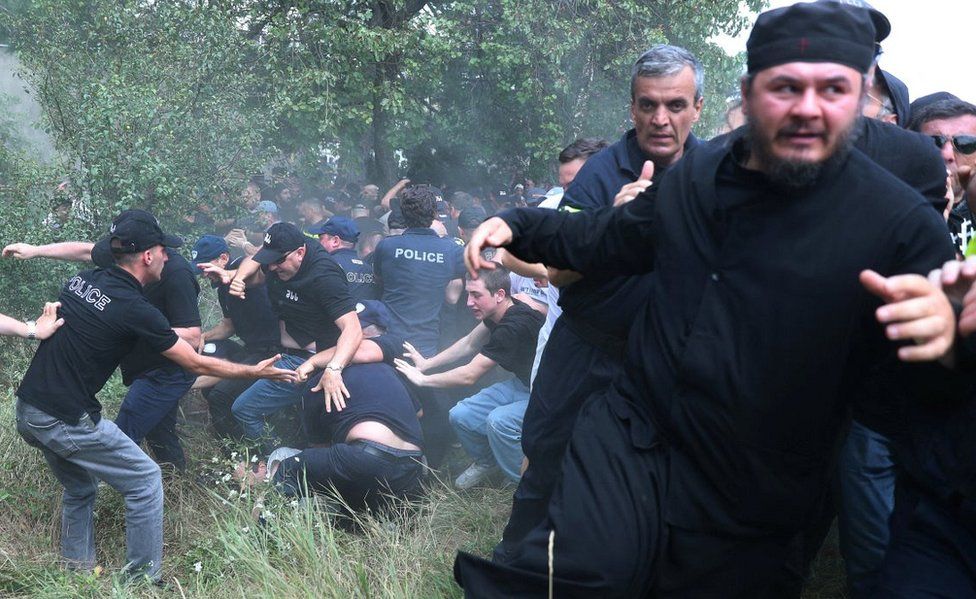




.png)












 Delegates are silhouetted before the start of the LNG2023 conference, in Vancouver, B.C., Monday, July 10, 2023. THE CANADIAN PRESS/Darryl Dyck
Delegates are silhouetted before the start of the LNG2023 conference, in Vancouver, B.C., Monday, July 10, 2023. THE CANADIAN PRESS/Darryl Dyck